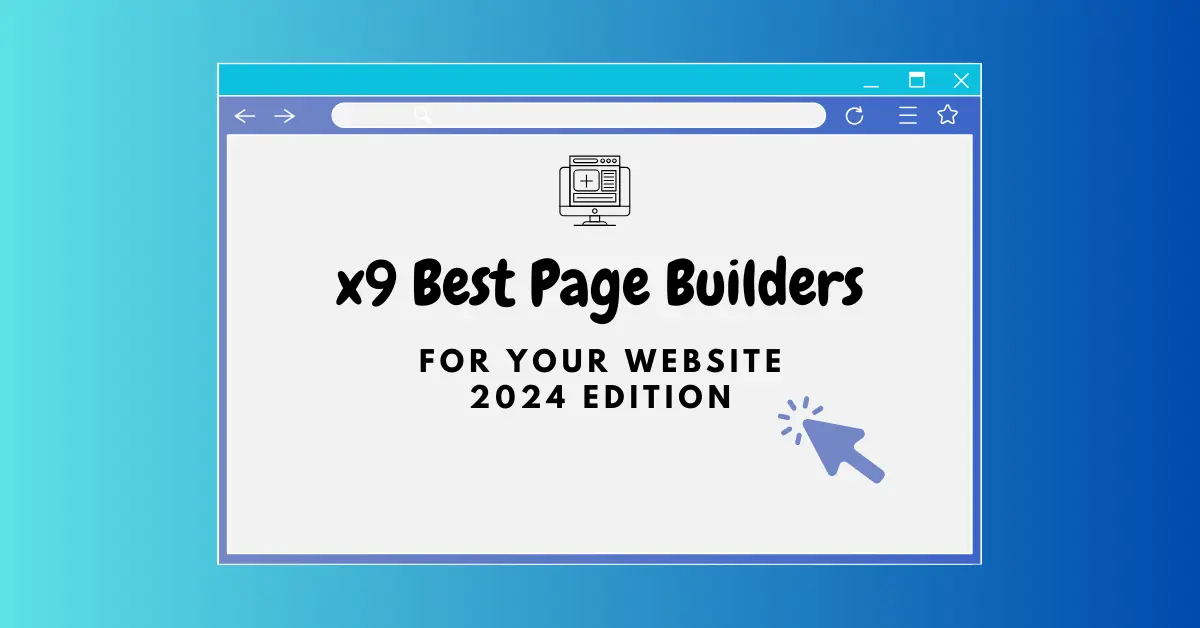Choosing the right landing page builder can dramatically improve your digital marketing efforts by simplifying the creation of effective and engaging pages. Whether you’re a small business owner, a digital marketer, or a large enterprise, having the right tools at your disposal can make a substantial difference in your marketing outcomes. Let’s dive into some Best Landing Page Builders for your Website that stand out this year for their ease of use, feature set, and overall efficiency.
Table of Contents
1. LeadPages
LeadPages is renowned for its intuitive design interface and extensive array of templates. It allows users to quickly assemble landing pages that are visually appealing and optimized for conversion. What’s more, LeadPages integrates seamlessly with analytics tools, helping you track the performance of your pages in real-time.
- Pros: Easy to use, wide variety of templates, great for beginners, integrates well with other marketing tools.
- Cons: Limited customization options for advanced users.
- Pricing: Paid, starting at $37 per month.
- Access Link: LeadPages
2. Unbounce
Unbounce offers a drag-and-drop builder that makes it straightforward to create custom pages without needing extensive technical know-how. The platform supports A/B testing and has built-in AI capabilities to ensure that your pages perform as effectively as possible, maximizing your conversion rates.
- Pros: Powerful drag-and-drop editor, strong A/B testing capabilities, AI optimization features.
- Cons: Higher learning curve, pricier for small businesses.
- Pricing: Paid plans start from $90 per month.
- Access Link: Unbounce
3. Instapage
Instapage stands out for its collaboration tools, making it an excellent choice for teams looking to streamline their marketing efforts. The platform’s real-time editing and version history features allow for easy adjustments and optimizations, ensuring that your team can quickly adapt to changing marketing strategies.
- Pros: Excellent for team collaboration, real-time editing, and extensive integration options.
- Cons: High cost, particularly for advanced analytics features.
- Pricing: Paid, starting at $149 per month.
- Access Link: Instapage
4. HubSpot Landing Pages
HubSpot provides a deeply integrated approach to landing page design, connecting with its CRM and marketing automation tools to offer a comprehensive marketing solution. This integration helps align landing page campaigns with broader marketing goals, providing consistency across all touchpoints.
- Pros: Seamless integration with HubSpot’s CRM, tailored for inbound marketing strategies.
- Cons: It can be expensive if you need advanced features and integrations.
- Pricing: Free to start; paid plans with more features begin at $50 per month
- Access Link: HubSpot Landing Pages
5. Wix
Wix is not just for building full websites; it also offers specific functionalities for creating landing pages. Its user-friendly interface and the freedom to add advanced features like video backgrounds and animation make it a versatile choice for creative professionals.
- Pros: Highly intuitive and versatile, great for complete websites and landing pages.
- Cons: It may load slower than other platforms due to heavy designs.
- Pricing: Free basic version; premium plans start at $14 per month.
- Access Link: Wix
6. ClickFunnels
ClickFunnels is not merely a landing page builder; it’s a comprehensive funnel creation tool. It helps marketers design sales funnels that guide visitors through a series of steps toward conversion, from initial contact to the final sale.
- Pros: Not just for landing pages but complete sales funnels; excellent for sales-focused campaigns.
- Cons: Fairly expensive and might offer more features than needed for just landing pages.
- Pricing: Paid, with plans starting at $97 per month.
- Access Link: ClickFunnels
7. Lander
Lander is an affordable solution that provides all the essential features to create effective landing pages. It’s particularly suitable for small businesses or startups on a tight budget, offering a tool to deliver high conversion rates without breaking the bank.
- Pros: Affordable, easy to use, good basic A/B testing features.
- Cons: Fewer features as compared to other platforms; not ideal for large-scale operations.
- Pricing: Paid, starting at $16 per month.
- Access Link: Lander
8. GetResponse
Primarily an email marketing tool, GetResponse also offers powerful landing page capabilities. It allows easy integration with your email campaigns, enhancing your ability to connect with your audience on multiple levels.
- Pros: Integrates landing pages with available email marketing automation tools.
- Cons: The focus is more on email campaigns than landing page functionality.
- Pricing: Paid, starting at $15 per month.
- Access Link: GetResponse
9. WordPress with Elementor
For those who prefer to stay within the WordPress ecosystem, Elementor presents a powerful plugin that transforms the WordPress editor into a sophisticated drag-and-drop landing page builder. It’s highly flexible and can be extended with numerous add-ons for additional functionality.
- Pros: Extremely customizable, vast ecosystem of plugins, works within the familiar WordPress environment.
- Cons: Requires some WordPress knowledge, which might be overwhelming for beginners.
- Pricing: Free for the basic plugin; Pro version starts at $49 per year.
- Access Link: WordPress with Elementor
Each tool offers unique advantages tailored to different needs and budgets, enabling businesses of all sizes to improve their online marketing efficiency and effectiveness.
What are the A/B testing features meant to be in pros?
A/B testing is a feature that allows you to compare two versions of a webpage to see which one performs better. Essentially, you create two variants of your landing page (A and B), each with a different element—like a headline, image, or call-to-action. Traffic is then split between these versions to measure which results in more conversions or achieves specific goals more effectively. This feature is valuable for optimizing your landing pages based on real user data.
Final Verdict
In conclusion, selecting the best landing page builder depends greatly on your specific needs, budget, and skill level. Each of these platforms offers something valuable to different types of users. By understanding your goals and the tools at your disposal, you can choose a landing page builder that meets and exceeds your expectations, enhancing your online presence and boosting your marketing efforts.

